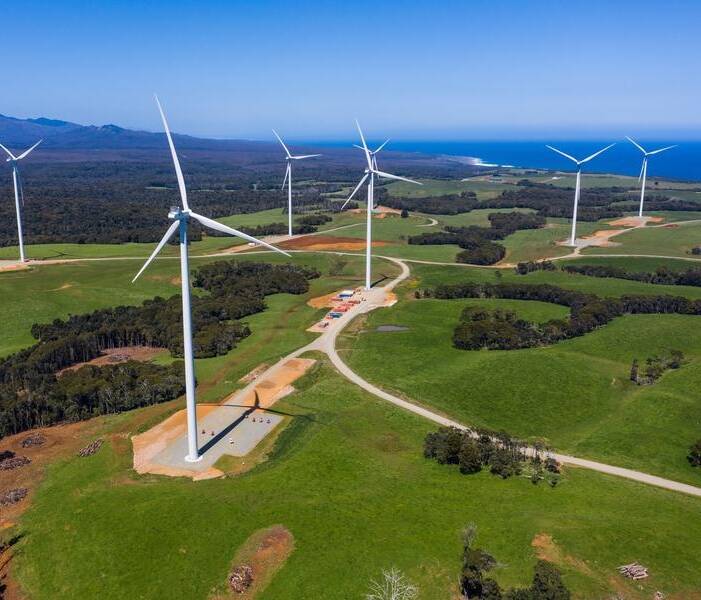
A new roadmap out of gridlock for the national electricity grid has been developed to fast-track projects that have been on the drawing board for years.
Releasing the 30-year plan for the National Electricity Market (NEM) amid an energy crisis, the market operator on Thursday acknowledged the need for new investment has "gathered momentum" in recent months.
There will be moments when there is enough renewable energy to meet 100 per cent of demand, the 2022 Integrated System Plan (ISP) shows, but the NEM must constantly supply affordable and reliable electricity to homes and businesses.
"It cannot offer quick fixes, but it does offer a clear and transparent roadmap through to 2030, and then to 2040 and 2050," Australian Energy Market Operator CEO Daniel Westerman said.
More than 10,000km of new transmission is needed to connect the increasingly diverse and geographically spread energy supply, as communities and industry move beyond a grid that relied on a handful of coal-fired power plants.
Mr Westerman said state and territory government energy policies have long called for new investment, and the new federal government's Rewiring the Nation policy will support its "timely" roll out.
Annual electricity consumption from the grid is expected to double by 2050, as transport, heating, cooking and industry go electric, while 60 per cent of current coal generation is tipped to exit by 2030.
A nine-fold increase in grid-scale wind and solar farm capacity, triple the firming capacity from storage, hydro and gas plants, and a near five-fold increase in rooftop solar on homes and businesses will be needed to maintain a secure, reliable and affordable electricity supply.
Gas-fired generation will play a crucial role as coal-fired generation retires, according to the plan.
The ISP says gas will complement battery and pumped hydro generation in periods of peak demand, and help cover for planned maintenance of existing generation and transmission.
"And it will provide essential power system services to maintain grid security and stability," the plan says.
"Particularly following unexpected outages or earlier than expected generation withdrawal."
Essential transmission projects are forecast to bring $28 billion in cost and efficiency benefits, returning 2.2 times their cost of $12.7 billion, but representing only seven per cent of the total generation, storage and network investment in the system.
Mr Westerman identified five projects for urgent construction.
Helping power get to where it is needed, the Victoria to NSW Interconnector West (VNI West) between the Snowy Mountains region and Melbourne would increase the transfer capacity between NSW and Victoria.
The long-awaited undersea Marinus Link would join Tasmania's abundant wind, solar and hydro energy and storage to the mainland network.
Transgrid's 360km HumeLink transmission line is intended to better connect Wagga Wagga, Bannaby and Maragle.
A proposed 'Sydney Ring' aims to strengthen the Sydney, Newcastle and Wollongong power supply.
A transmission link for the New England Renewable Energy Zone in NSW is also required, to support the hub's energy generation and storage.







